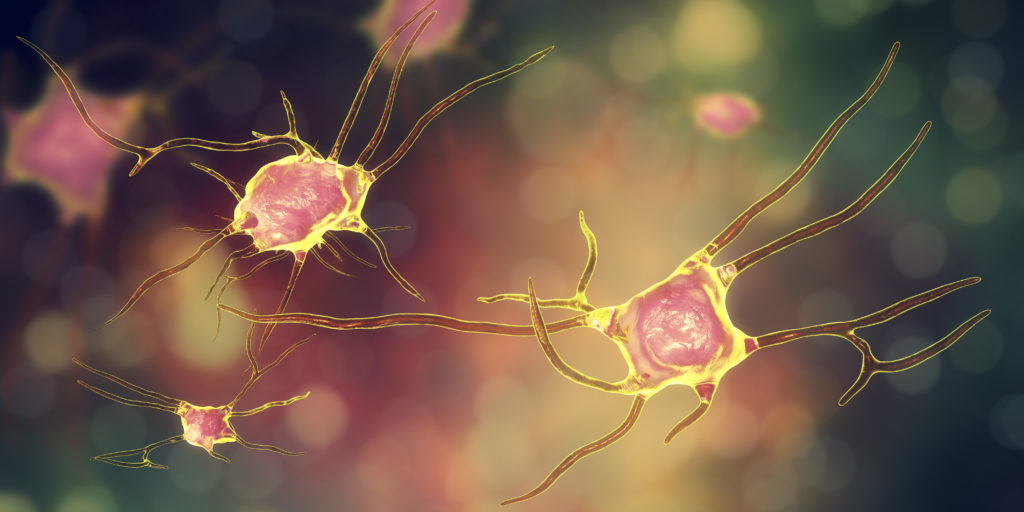Quick Hits
Daily brief research updates from the cognitive sciences

Always nice to know that you brain can grow – and it is still met with surprise when I explain how this can happen to audiences when speaking in public. But this recent research gives some fascinating insights into a new mechanism of growth in the brain.
Researchers around Terry Dean of the Children’s National Hospital in the USA have found a mechanism that is controlled by daily rhythms and this could lead to new insight and more effective methods to help recovery after brain injury.
Your brain cells, neurons are pretty fixed with new generation of cells only in very limited areas in the brain. However, they can rebuild and strengthen connections. There are also group of cells called micro glia or glial cells and these are considered the brains “helping” cells – they are also essential to healthy brain functioning performing many critical functions.
One of these goes under the technical name of NG2-glia, or “oligodendrocyte precursor”, sorry I know that won’t help you (in short, it’s one of the brain’s helping cells). Anyhow these are one of the few cells in the brain that can continuously regenerate. And what the researchers found is that these follow daily rhythms with proliferation of these cells coinciding with the highest levels of a factor known as Bmal-1RNA. This is a protein that helps the body clock stay in rhythm and is highest when we should be most active – during the day.
What is interesting is that this can help us guide recovery better by taking into account times of day during treatment – we also know that traumatic brain injury (TBI) can disrupt daily rhythms which could explain some of the negative effects.
Also, of interest is that we would probably assume that much healing would take place as night – but this shows not so in this particular case.
This highlights once more the importance of daily rhythms in just about everything!

Andy Habermacher
Andy is author of leading brains Review, Neuroleadership, and multiple other books. He has been intensively involved in writing and research into neuroleadership and is considered one of Europe’s leading experts. He is also a well-known public speaker, speaking on the brain and human behaviour.
Andy is also a masters athlete (middle distance running) and competes regularly at international competitions (and holds a few national records in his age category).
References
Terry Dean, Aissia Victoria Koffi, Evan Goldstein, Javid Ghaemmaghami, Vittorio Gallo.
Endogenous circadian clock machinery in cortical NG2-glia regulates cellular proliferation.
eneuro, 2022
DOI: 10.1523/ENEURO.0110-22.2022
More Quick Hits
Groovy Music Improves Brain Performance
Quick HitsDaily brief research updates from the cognitive sciences et into the groove… or so sang Madonna with her hit single in 1985. Little did she know at the time but getting into the groove certainly does seem to be beneficial for you - not to...
Even Moderate Alcohol Consumption Linked to Brain Decline
Quick HitsDaily brief research updates from the cognitive sciences he tide seems to have turned on alcohol. Though we have always known that excessive alcohol consumption is negative there were for a long time inconsistencies with the research into...
Flu Vaccination Dramatically Lowers Risk Of Alzheimer’s
Quick HitsDaily brief research updates from the cognitive sciences am always interested in headlines that are related to brain health. And though Alzheimer’s is a long way off for (hopefully) me, this still struck me as interesting. For me this...
How Mindfulness Meditation Reduces Pain
Quick HitsDaily brief research updates from the cognitive sciences indfulness meditation has been shown to be beneficial for many things such as lowering stress, increasing wellbeing but also making better decisions and being less biased. Not bad....
You Smell Like Your Friends
Quick HitsDaily brief research updates from the cognitive sciences e all know that dogs like to sniff each other - often in "delicate" parts of their body. We also know that many other animals have very good sense of smells. But in our daily lives,...
Social Interactions Define Your Sense of Purpose
Quick HitsDaily brief research updates from the cognitive sciences aving a sense of purpose is a pretty good thing to have because it seems to correlate with multiple health and life satisfaction measures. If you have a healthy sense of purpose you...






